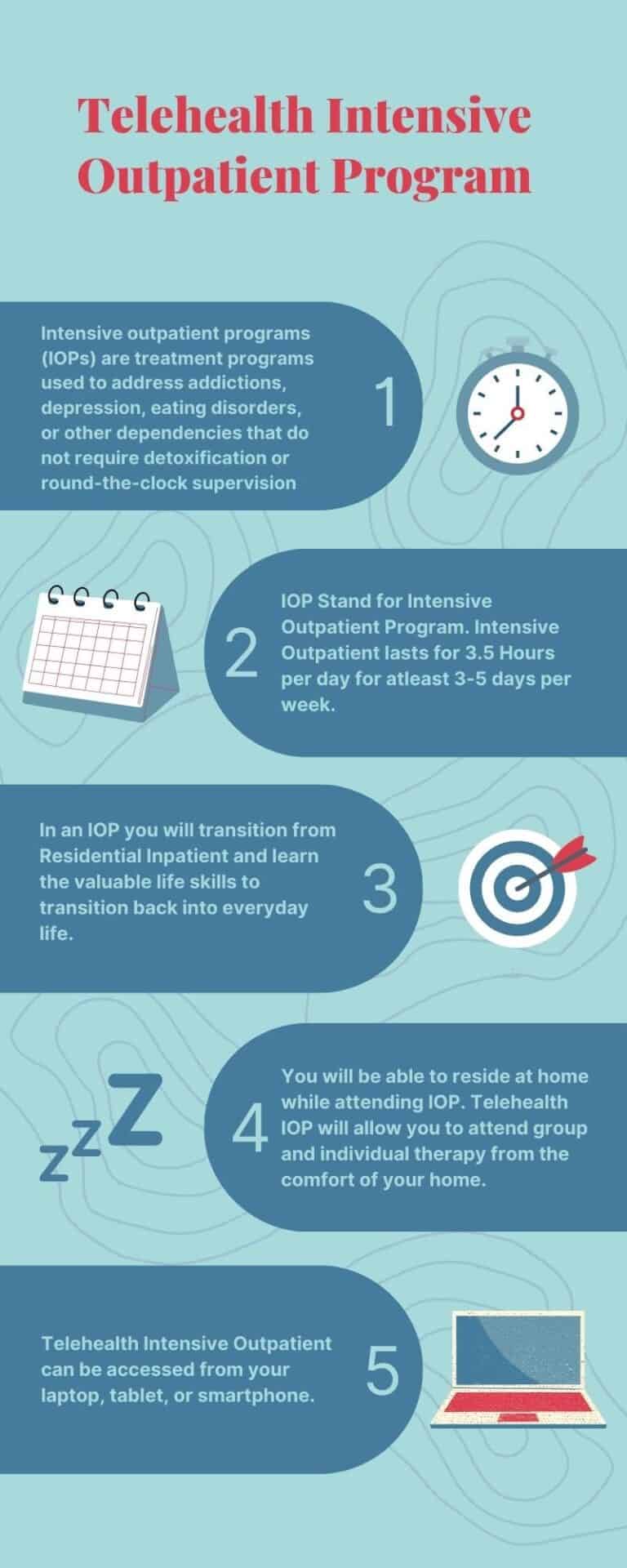The Influence of Holistic Therapies on Mind-Body Recovery in an Intensive Outpatient Program
In the realm of extensive outpatient programs, the unification of alternative therapies has actually stimulated substantial interest and argument among experts in the area of psychological wellness and health. The expedition of alternative methods, such as yoga, meditation, acupuncture, and mindfulness strategies, questions about their performance in advertising mind-body recovery for people undergoing therapy. As the demand for extensive and integrative treatment grows, understanding the effect of these all natural interventions within the organized structure of an intensive outpatient program comes to be progressively vital. The potential harmony in between conventional healing modalities and all natural practices in promoting all natural health remains a subject ripe for expedition and evaluation.
Integrating Holistic Therapies in IOP
Incorporating all natural therapies into Extensive Outpatient Programs (IOP) can enhance the general health and treatment end results of individuals seeking psychological health support. Alternative treatments concentrate on dealing with the entire individual, dealing with not just the symptoms however additionally the underlying root causes of mental health and wellness concerns. By integrating methods such as yoga exercise, reflection, art treatment, and acupuncture into IOP settings, patients can experience a more comprehensive method to their treatment.

Advantages of Yoga Exercise and Reflection
By instilling IOP setups with all natural treatments like yoga exercise and reflection, people can access a variety of advantages that contribute to their mental and emotional well-being. Yoga, with its concentrate on physical postures, breathing techniques, and mindfulness, can help people lower stress and anxiety, anxiousness, and clinical depression. The technique of yoga exercise promotes relaxation and improves total state of mind by launching endorphins, the body's natural feel-good chemicals. Furthermore, yoga boosts self-awareness and cultivates a feeling of inner peace, which can be particularly beneficial for people going through intensive outpatient treatment.

Acupuncture for Mind-Body Healing
Acupuncture, a traditional Chinese medication technique involving the insertion of slim needles into specific factors on the body, uses a distinct approach to mind-body recovery by targeting energy circulation and promoting alternative wellness. This ancient technique is based upon the idea of Qi, the body's vital force, streaming along meridians or pathways. By boosting particular acupoints, acupuncturists intend to bring back the balance of Qi, which is thought to be vital for overall health and well-being.
In the context of mind-body healing, acupuncture has actually shown promising cause minimizing stress and anxiety, anxiety, and depression by controling the body's see here physiological action to straight from the source these problems. Study recommends that acupuncture can aid release endorphins, the body's natural painkillers, and regulate neurotransmitters to enhance mood and emotional wellness. Furthermore, acupuncture sessions are often accompanied by a sense of relaxation and calmness, which can add to a more balanced psychological state.
Furthermore, acupuncture is increasingly being incorporated right into Western medication techniques to match conventional treatments for different mental health disorders, offering a holistic approach that thinks about the interconnectedness of the mind and body in promoting healing and health. Intensive Outpatient Program (IOP).
Mindfulness Techniques in Therapy
Increasing on the world of alternative therapies, mindfulness techniques play a crucial duty in therapy by promoting a deeper connection in between the body and mind for general well-being. Mindfulness, rooted in old reflective methods, involves taking note of the existing minute non-judgmentally. In the context of an intensive outpatient program, integrating mindfulness techniques can help people create self-awareness, control emotions, and reduce stress degrees. Via mindfulness meditation, individuals can grow an increased feeling of recognition of their ideas, sensations, and bodily experiences, promoting a greater understanding of the interconnectedness between physical and psychological well-being.
Mindfulness methods can also help in breaking the cycle of unfavorable thought patterns and habits that may add to mental health and wellness challenges. By urging individuals to observe their ideas without attachment or judgment, mindfulness promotes a feeling of acceptance and concern towards oneself (Intensive Outpatient Program (IOP)). This technique can result in boosted emotional durability, boosted coping systems, and a better sense of inner tranquility. Ultimately, incorporating mindfulness techniques into therapy strategies can empower people to proactively take part in their healing trip and advertise holistic wellness.

Examining Alternative Treatments' Effectiveness

Qualitative analyses, on the various other hand, involve collecting subjective comments from individuals concerning their experiences with all natural interventions. This qualitative information can use important understandings right into the viewed advantages of these treatments on individuals' overall wellness, lifestyle, and coping systems. By incorporating quantitative information with qualitative feedback, scientists can obtain an extra all natural understanding of the efficiency of these treatments in promoting mind-body recovery within an intensive outpatient program. Such examinations are important for educating evidence-based practices and maximizing holistic therapy approaches for people seeking detailed health.
Conclusion
In final thought, the combination of holistic treatments such as yoga, meditation, acupuncture, and mindfulness techniques in an Recommended Reading intensive outpatient program can have a substantial influence on mind-body healing. These treatments offer an even more extensive approach to therapy by attending to the physical, psychological, and spiritual facets of a person's health - Intensive Outpatient Program (IOP). Evaluating the efficiency of these holistic interventions is vital in recognizing their prospective benefits in improving the general recovery procedure for people in an outpatient setup